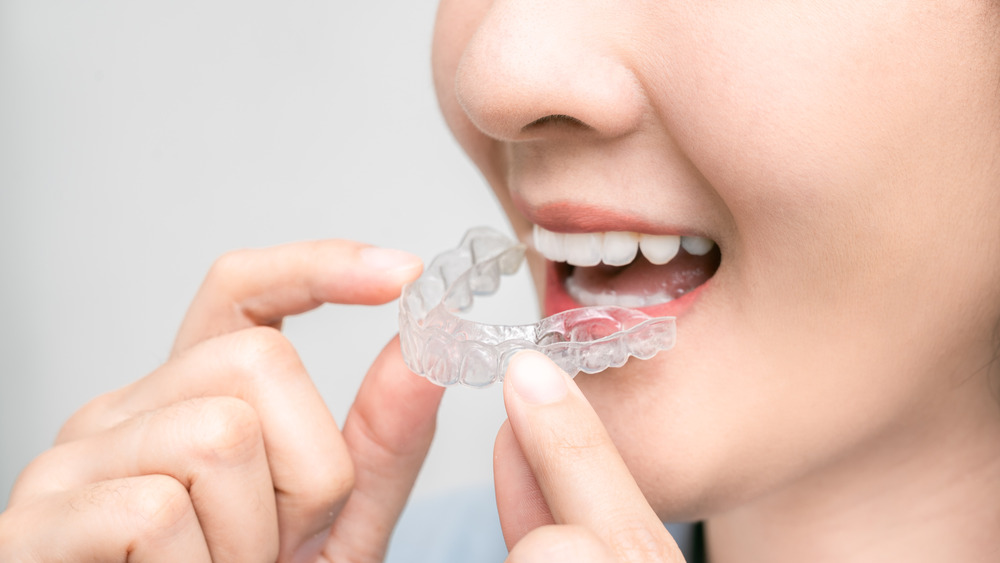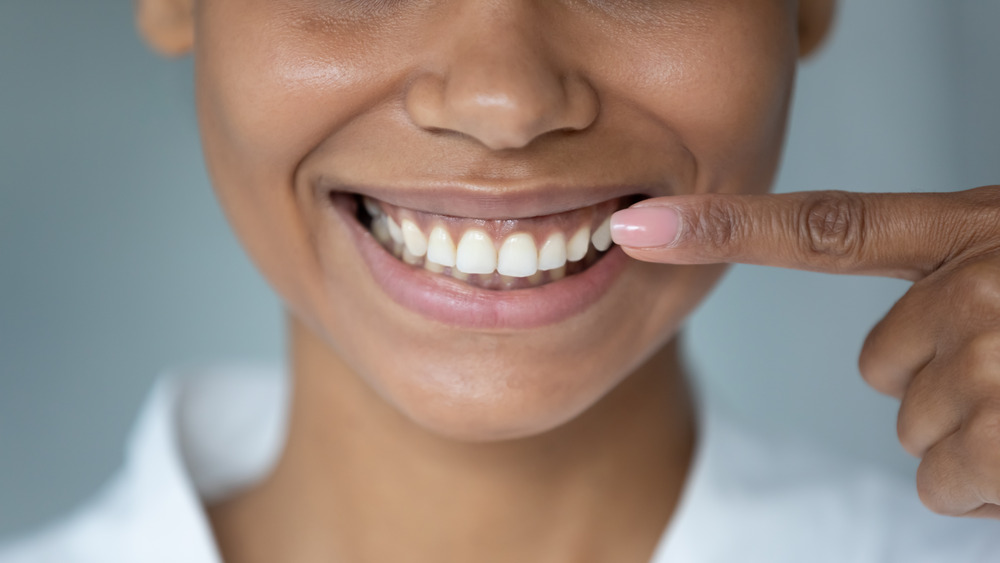When You Stop Wearing Your Retainer, This Is What Happens To Your Teeth
The moment that you get your braces off is definitely an exciting one. And even though your orthodontist will tell you to consistently wear your retainer post-braces, there might be days (or let's be honest, weeks or months), in which you retire your retainer to the back of your drawer. But teeth can start getting shifty, so it's important to understand what happens to your teeth when you stop wearing your retainer.
It's definitely a dental dilemma. You want to keep your newly-straightened teeth beautiful, but you might not want to be bothered having to pop a retainer in each and every night, either. Retainers, for the most part, are custom-made pieces that are meant to hold your teeth in their proper place (via Healthline). As soon as your braces are a bygone, your retainer will immediately come in to take its place. As such, you can expect to wear a retainer all day, every day for the first four months to a year after having braces (via Colgate).
There are actually different types of retainers, ranging from traditional removable retainers, which are made from plastic and feature an adjustable metal wire that sits across the front teeth, to clear removable retainers — also known as molded retainers — which are customized trays that fit up and around both sets of teeth. Clear retainers are barely noticeable, since they are made from plastic. Then there's a fixed retainer (i.e., not removable). These retainers feature a thin wire that is cemented to the inside of the patient's teeth, keeping the retainer in place (via Perfect Smiles Are Us).
Here's what really happens when you stop wearing your retainer
With a fixed retainer, you won't have to worry about your teeth shifting, since the wire is bonded to your teeth. The problem comes in when you have removable retainers — and you potentially forget to put them in. If you don't wear a retainer, you run the risk of your teeth starting to shift slightly. This can also affect your bite as well (per Sage Orthodontics).
What can further complicate the issue is the amount of time that has elapsed since you wore your retainer. If it's been a really, really long time (and you can't even get the retainer onto your teeth), you might need to start your orthodontic treatments all over again (via Elite Daily). When you consider the cost of starting all over again — plus the financial investment and not being able to eat those sticky foods that are a dental no-no — it's worth the hassle of wearing your retainer.
The truth is that you might always need to wear a retainer (via Healthline). And even though it might make you feel frustrated to be tied to your retainer nightly, you'll be grateful for it when you show off your beautiful smile every day.

